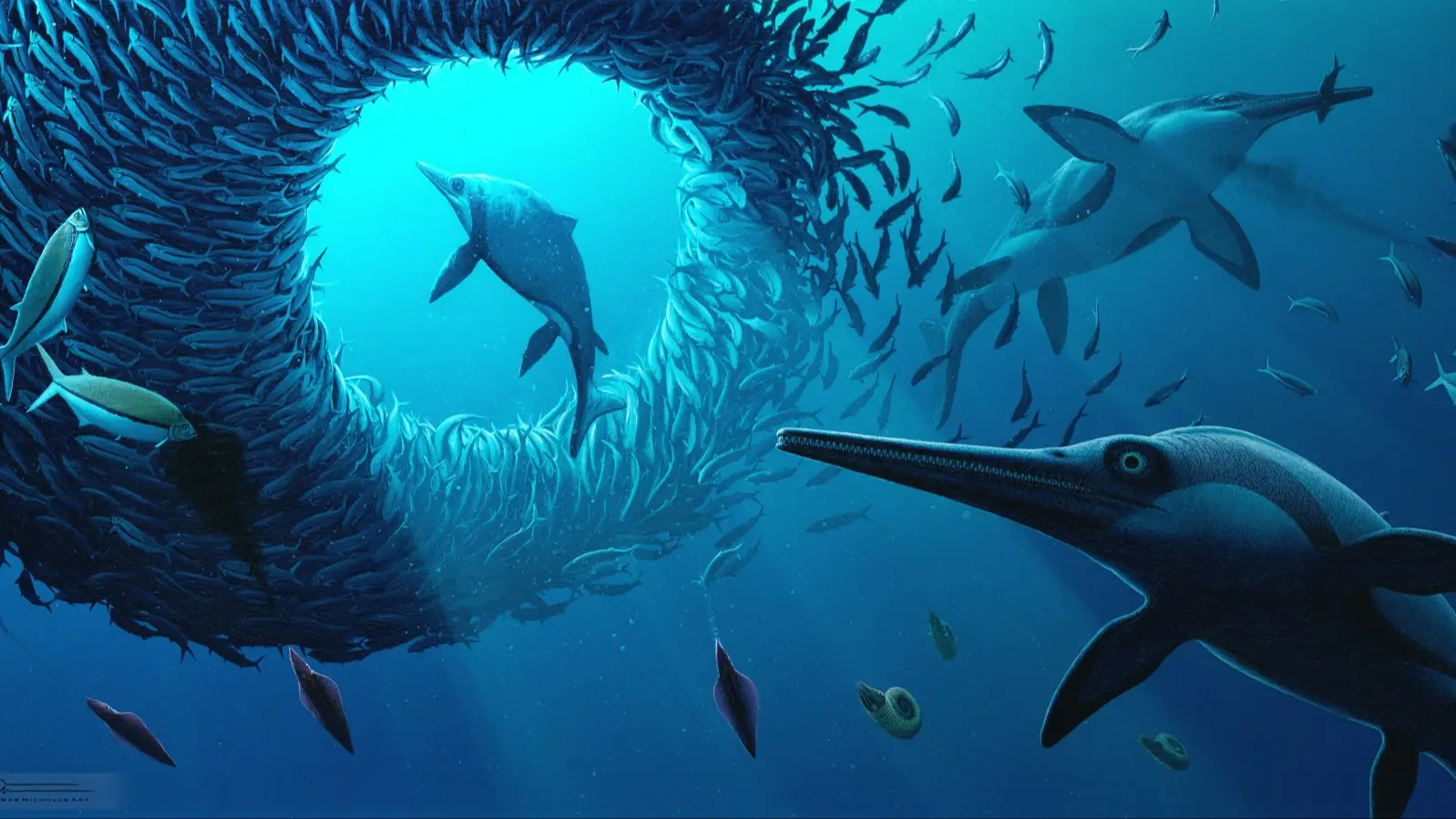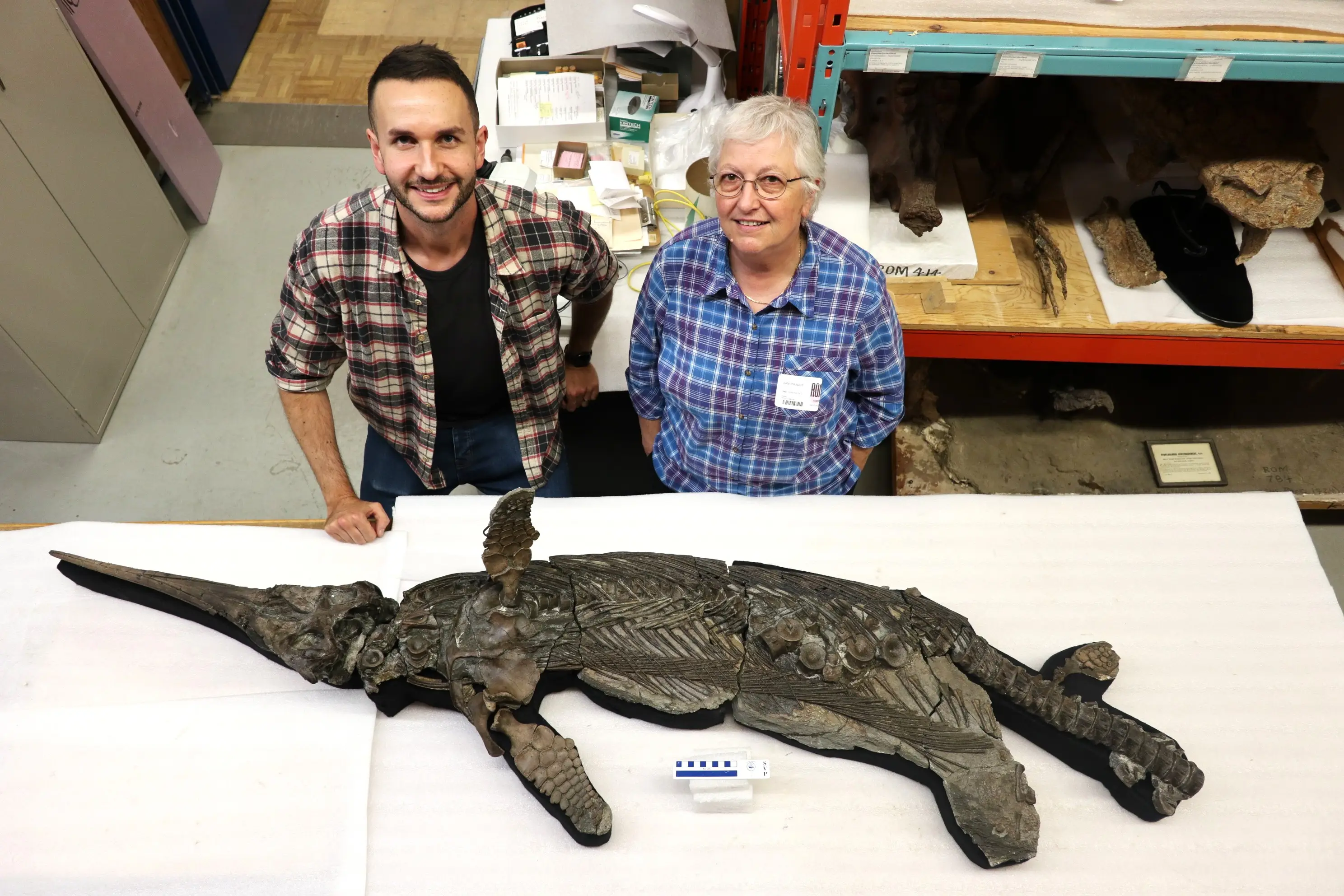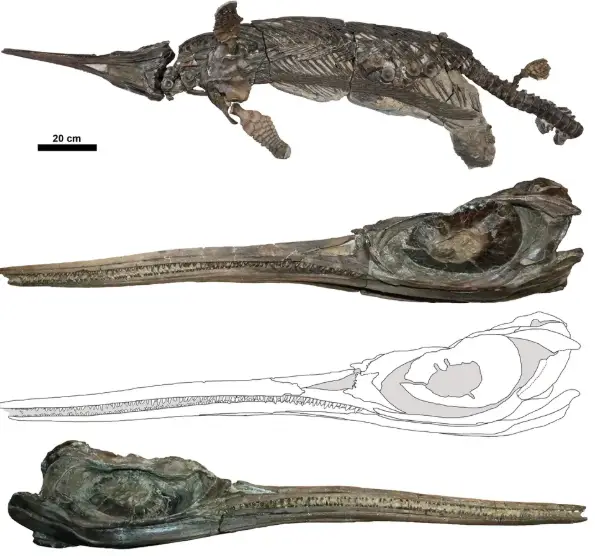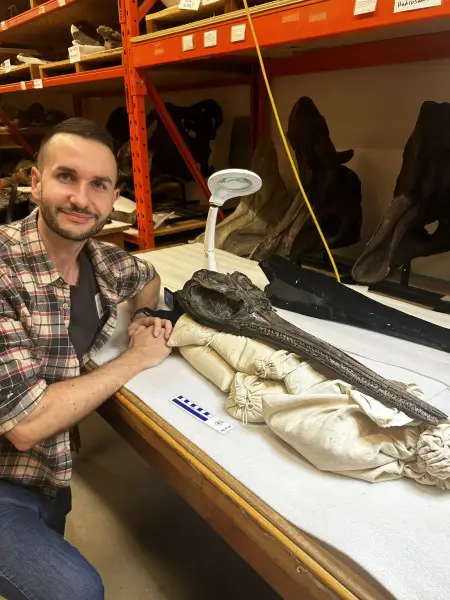
A rare marine species has just been discovered, which could pinpoint a very interesting time in history for the Jurassic period.
Found on the UK's Jurassic Coast, this new and rare species of ichthyosaur was revealed in a study published just yesterday (October 10) and could tell us a lot about the species.
The ichthyosaur is a type of prehistoric marine reptile that was once an apex predator of the seas.
Similar to a dolphin, an ichthyosaur now dubbed Xiphodracon goldencapsis, or the ‘Sword Dragon of Dorset’ has been found to be the only known fossil of its kind, which could be used to solve an evolutionary fossil record of ichthyosaurs.
Advert
The fossil was found to have lived during the Early Jurassic era, around 190 million years ago, as per a study published in the journal Papers in Palaeontology.

While thousands of ichthyosaur fossils have been found along the UK’s coast, this is only the first of its kind, and it shows obvious differences from other species.
Xiphodracon goldencapsis was dated to have lived during the Pliensbachian, a time period that lasted from approximately 193 million to 184 million years ago, placing it close to the later years of the Early Jurassic era.
It was actually found at the Golden Cap in 2001 by Dorset fossil collector Chris Moore, finding it almost perfectly preserved in three dimensions.
He found the skeleton which includes a skull with an ‘enormous’ eye socket and a long sword-like snout, and they could even see what it had eaten shortly before its death.
The scientists say it would have been approximately 10 feet long and eaten a soft fish and squid diet.
After finding the specimen, Moore went on to sell it to the Royal Ontario Museum, where it was displayed until a group of experts examined it last year.
The study was led by ichthyosaur expert Dr Dean Lomax, an Honorary Research Fellow at The University of Manchester, and his colleagues.
The group quickly noted several features in the Xiphodracon that have never been seen in any other ichthyosaur.
The oddest difference was the bone around the nostril, which appears to have prong-like bony structures.

Dr Lomax explained that this led to the creation of its name, as xipho is Greek for sword, and dracon is Green and Latin for dragon.
These features allowed them to slot the species in within the evolutionary scale of ichthyosaur, placing a shift in the species’ changes much earlier than once thought.
Dr Lomax said: “I remember seeing the skeleton for the first time in 2016. Back then, I knew it was unusual, but I did not expect it to play such a pivotal role in helping to fill a gap in our understanding of a complex faunal turnover during the Pliensbachian.”
He explained that during this time, ‘several families went extinct and new families emerged’.
But Xiphodracon is something you might consider a ‘missing piece of the ichthyosaur puzzle’, as it means the characteristics of ichthyosaur species began to change much earlier than previously thought.

Ichthyosaur expert and co-author, Professor Judy Massare, from the State University of NY at Brockport, USA, said that there was ‘clearly a major change in species diversity’ in the Pliensbachian because of the death and emergence of different families of ichthyosaur, and now ‘Xiphodracon helps to determine when the change occurred, but we still don’t know why.’
Dr Erin Maxwell, a co-author and ichthyosaur expert from the State Museum of Natural History Stuttgart, added: “This skeleton provides critical information for understanding ichthyosaur evolution, but also contributes to our understanding of what life must have been like in the Jurassic seas of Britain.
"The limb bones and teeth are malformed in such a way that points to serious injury or disease while the animal was still alive, and the skull appears to have been bitten by a large predator - likely another much larger species of ichthyosaur- giving us a cause of death for this individual. Life in the Mesozoic oceans was a dangerous prospect.”
